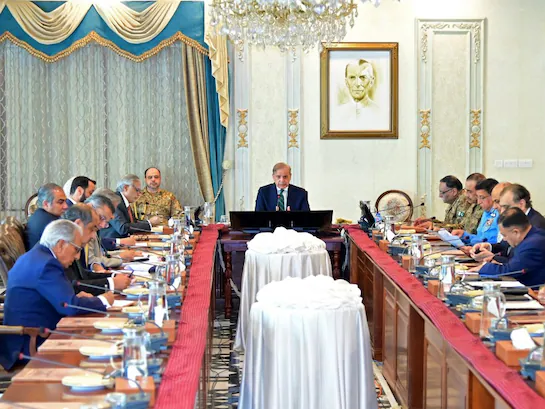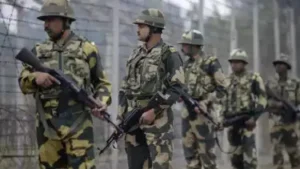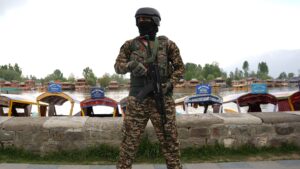
Pakistan asserts its right to halt bilateral agreements such as the Simla Agreement.
Pakistan has announced its intention to halt all bilateral agreements with India including the 1972 Simla Agreement in a move that has caused a stir throughout the subcontinent. This dramatic action comes after tensions were already high and represents a major escalation in the tense relationship between the two neighbors who possess nuclear weapons. But how did we get here and what does this mean for the area
A Foundation for Peace: The Simla Agreement

The Simla Agreement which was signed in 1972 following the Bangladesh Liberation War has been a vital component of India-Pakistan diplomatic ties. The agreement placed a strong emphasis on maintaining the Line of Control (LoC) in Jammu and Kashmir peacefully resolving conflicts and respecting one another’s sovereignty. It provided a framework for preventing armed conflicts and represented a dedication to communication and collaboration.
Even in times of animosity the Simla Agreement has been cited as a guiding principle in talks and negotiations between the two nations for more than 50 years. Thus its suspension signifies a significant change in the geopolitical environment.
The Background of Pakistan’s Choice

A series of incidents that have increased tensions between the two countries have led to Pakistan’s decision to use its authority to halt bilateral agreements. The recent terror attack in the Pahalgam region of Jammu and Kashmir which India has connected to organizations based in Pakistan seems to be the direct cause.
Islamabad has strongly refuted India’s long-standing accusation that Pakistan harbors and supports terrorist groups that conduct cross-border attacks. Pakistan has responded by pointing to India’s actions in Jammu and Kashmir as a breach of earlier accords such as the Simla Agreement especially the 2019 revocation of Article 370 which deprived the area of its special status.
Each side accuses the other of undermining peace efforts which has led to a vicious cycle of mutual blame. Finding common ground may become even more difficult if bilateral pacts are suspended because they could solidify this cycle.
Asaduddin Owaisi Confirms
Possible Repercussions of the Suspension

This action has wide-ranging and complex ramifications:
- Deterioration of Diplomatic Relations: When agreements are suspended diplomacy is essentially put on hold. Even everyday exchanges between the two governments could become tense in the absence of a framework.
- Effect on Trade and Travel: Bilateral agreements regulate economic and cultural exchanges in addition to political ties. Trade routes, tourism, and interpersonal relationships may all be hampered by the suspension.
- Enhanced Military Tensions: The likelihood of skirmishes and military conflicts rises in the absence of the Simla Agreement, which protects the integrity of the Line of Control. Misunderstandings have the potential to turn into confrontations when there is no shared commitment to communication.
- Regional Instability: The suspension may cause instability in the South Asian region extending beyond India and Pakistan. Given the possibility of broader ramifications neighboring nations and superpowers will probably keep a close eye on the situation.
- Difficulties for International Mediation: The action makes it more difficult for foreign parties to mediate disputes between the two countries. The foundation for such mediation is ambiguous when bilateral agreements are suspended.
Next Steps?
The future is uncertain. Will relations completely collapse as a result of this suspension or is it a calculated move to renegotiate terms under a different framework? In the upcoming weeks a lot will depend on what India and Pakistan do and how they respond.
Pakistan’s annoyance with what it considers to be India’s unilateral actions in Jammu and Kashmir is reflected in this decision. It is likely to be interpreted by India as an effort by Pakistan to divert attention away from internal issues and pressure from other countries regarding its response to terrorism.
Worldwide Responses

The role of the international community which includes nations with a stake in South Asia and institutions like the United Nations is vital. There will probably be calls for moderation and communication but how successful they are will depend on how willing both sides are to participate.
In conclusion
An important turning point in India-Pakistan relations is the suspension of bilateral agreements such as the Simla Agreement. It emphasizes the profound mistrust and unsolved problems that still characterize their interactions. The action is a blow to diplomacy but it also serves as a clear reminder of how urgently communication and conflict resolution are needed.
DPVNATION





